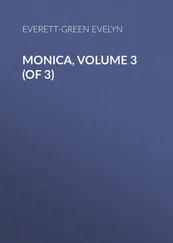Friedrich Max Müller - Chips from a German Workshop, Volume 1
Здесь есть возможность читать онлайн «Friedrich Max Müller - Chips from a German Workshop, Volume 1» — ознакомительный отрывок электронной книги совершенно бесплатно, а после прочтения отрывка купить полную версию. В некоторых случаях можно слушать аудио, скачать через торрент в формате fb2 и присутствует краткое содержание. Жанр: foreign_prose, foreign_antique, на английском языке. Описание произведения, (предисловие) а так же отзывы посетителей доступны на портале библиотеки ЛибКат.
- Название:Chips from a German Workshop, Volume 1
- Автор:
- Жанр:
- Год:неизвестен
- ISBN:нет данных
- Рейтинг книги:3 / 5. Голосов: 1
-
Избранное:Добавить в избранное
- Отзывы:
-
Ваша оценка:
- 60
- 1
- 2
- 3
- 4
- 5
Chips from a German Workshop, Volume 1: краткое содержание, описание и аннотация
Предлагаем к чтению аннотацию, описание, краткое содержание или предисловие (зависит от того, что написал сам автор книги «Chips from a German Workshop, Volume 1»). Если вы не нашли необходимую информацию о книге — напишите в комментариях, мы постараемся отыскать её.
Chips from a German Workshop, Volume 1 — читать онлайн ознакомительный отрывок
Ниже представлен текст книги, разбитый по страницам. Система сохранения места последней прочитанной страницы, позволяет с удобством читать онлайн бесплатно книгу «Chips from a German Workshop, Volume 1», без необходимости каждый раз заново искать на чём Вы остановились. Поставьте закладку, и сможете в любой момент перейти на страницу, на которой закончили чтение.
Интервал:
Закладка:
F. Max Müller
Chips from a German Workshop, Volume 1 / Essays on the Science of Religion
et quanto diutius
Abes, magis cupio tanto et magis desidero.
PREFACE
More than twenty years have passed since my revered friend Bunsen called me one day into his library at Carlton House Terrace, and announced to me with beaming eyes that the publication of the Rig-veda was secure. He had spent many days in seeing the Directors of the East-India Company, and explaining to them the importance of this work, and the necessity of having it published in England. At last his efforts had been successful, the funds for printing my edition of the text and commentary of the Sacred Hymns of the Brahmans had been granted, and Bunsen was the first to announce to me the happy result of his literary diplomacy. 'Now,' he said, 'you have got a work for life—a large block that will take years to plane and polish.' 'But mind,' he added, 'let us have from time to time some chips from your workshop.'
I have tried to follow the advice of my departed friend, and I have published almost every year a few articles on such subjects as had engaged my attention, while prosecuting at the same time, as far as altered circumstances would allow, my edition of the Rig-veda, and of other Sanskrit works connected with it. These articles were chiefly published in the 'Edinburgh' and 'Quarterly Reviews,' in the 'Oxford Essays,' in 'Macmillan's' and 'Fraser's Magazines,' in the 'Saturday Review,' and in the 'Times.' In writing them my principal endeavour has been to bring out even in the most abstruse subjects the points of real interest that ought to engage the attention of the public at large, and never to leave a dark nook or corner without attempting to sweep away the cobwebs of false learning, and let in the light of real knowledge. Here, too, I owe much to Bunsen's advice, and when last year I saw in Cornwall the large heaps of copper ore piled up around the mines, like so many heaps of rubbish, while the poor people were asking for coppers to buy bread, I frequently thought of Bunsen's words, 'Your work is not finished when you have brought the ore from the mine: it must be sifted, smelted, refined, and coined before it can be of real use, and contribute towards the intellectual food of mankind.' I can hardly hope that in this my endeavour to be clear and plain, to follow the threads of every thought to the very ends, and to place the web of every argument clearly and fully before my readers, I have always been successful. Several of the subjects treated in these essays are, no doubt, obscure and difficult: but there is no subject, I believe, in the whole realm of human knowledge, that cannot be rendered clear and intelligible, if we ourselves have perfectly mastered it. And now while the two last volumes of my edition of the Rig-veda are passing through the press, I thought the time had come for gathering up a few armfulls of these chips and splinters, throwing away what seemed worthless, and putting the rest into some kind of shape, in order to clear my workshop for other work.
The first and second volumes which I am now publishing contain essays on the early thoughts of mankind, whether religious or mythological, and on early traditions and customs. There is to my mind no subject more absorbing than the tracing the origin and first growth of human thought;—not theoretically, or in accordance with the Hegelian laws of thought, or the Comtian epochs; but historically, and like an Indian trapper, spying for every footprint, every layer, every broken blade that might tell and testify of the former presence of man in his early wanderings and searchings after light and truth.
In the languages of mankind, in which everything new is old and everything old is new, an inexhaustible mine has been discovered for researches of this kind. Language still bears the impress of the earliest thoughts of man, obliterated, it may be, buried under new thoughts, yet here and there still recoverable in their sharp original outline. The growth of language is continuous, and by continuing our researches backward from the most modern to the most ancient strata, the very elements and roots of human speech have been reached, and with them the elements and roots of human thought. What lies beyond the beginnings of language, however interesting it may be to the physiologist, does not yet belong to the history of man, in the true and original sense of that word. Man means the thinker, and the first manifestation of thought is speech.
But more surprising than the continuity in the growth of language, is the continuity in the growth of religion. Of religion, too, as of language, it may be said that in it everything new is old, and everything old is new, and that there has been no entirely new religion since the beginning of the world. The elements and roots of religion were there, as far back as we can trace the history of man; and the history of religion, like the history of language, shows us throughout a succession of new combinations of the same radical elements. An intuition of God, a sense of human weakness and dependence, a belief in a Divine government of the world, a distinction between good and evil, and a hope of a better life, these are some of the radical elements of all religions. Though sometimes hidden, they rise again and again to the surface. Though frequently distorted, they tend again and again to their perfect form. Unless they had formed part of the original dowry of the human soul, religion itself would have remained an impossibility, and the tongues of angels would have been to human ears but as sounding brass or a tinkling cymbal. If we once understand this clearly, the words of St. Augustine which have seemed startling to many of his admirers, become perfectly clear and intelligible, when he says: 1 1 August. Retr. 1, 13. 'Res ipsa, quæ nunc religio Christiana nuncupatur, erat apud antiquos, nec defuit ab initio generis humani, quousque Christus veniret in carnem, unde vera religio, quæ jam erat, cœpit appellari Christiana.'
'What is now called the Christian religion, has existed among the ancients, and was not absent from the beginning of the human race, until Christ came in the flesh: from which time the true religion, which existed already, began to be called Christian.' From this point of view the words of Christ too, which startled the Jews, assume their true meaning, when He said to the centurion of Capernaum: 'Many shall come from the east and the west, and shall sit down with Abraham, and Isaac, and Jacob, in the kingdom of heaven.'
During the last fifty years the accumulation of new and authentic materials for the study of the religions of the world, has been most extraordinary; but such are the difficulties in mastering these materials that I doubt whether the time has yet come for attempting to trace, after the model of the Science of Language, the definite outlines of the Science of Religion. By a succession of the most fortunate circumstances, the canonical books of three of the principal religions of the ancient world have lately been recovered, the Veda, the Zend-Avesta, and the Tripi t aka. But not only have we thus gained access to the most authentic documents from which to study the ancient religion of the Brahmans, the Zoroastrians, and the Buddhists, but by discovering the real origin of Greek, Roman, and likewise of Teutonic, Slavonic, and Celtic mythology, it has become possible to separate the truly religious elements in the sacred traditions of these nations from the mythological crust by which they are surrounded, and thus to gain a clearer insight into the real faith of the ancient Aryan world.
Читать дальшеИнтервал:
Закладка:
Похожие книги на «Chips from a German Workshop, Volume 1»
Представляем Вашему вниманию похожие книги на «Chips from a German Workshop, Volume 1» списком для выбора. Мы отобрали схожую по названию и смыслу литературу в надежде предоставить читателям больше вариантов отыскать новые, интересные, ещё непрочитанные произведения.
Обсуждение, отзывы о книге «Chips from a German Workshop, Volume 1» и просто собственные мнения читателей. Оставьте ваши комментарии, напишите, что Вы думаете о произведении, его смысле или главных героях. Укажите что конкретно понравилось, а что нет, и почему Вы так считаете.












